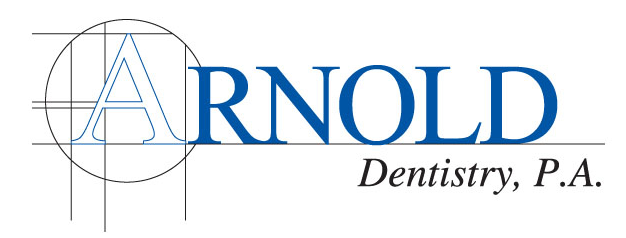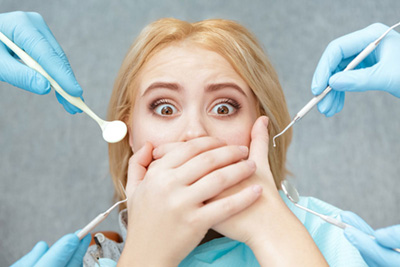About Dental Phobia or Dental Anxiety
Wed, Jul 7th, 2021
It is recommended that adults visit their dentist every 6 months for a dental cleaning and oral exam and to make an appointment between cleanings if any problems with teeth or gums arise but certain people can't bring themselves to go to the dentist. They suffer from a dental phobia (fear of the dentist).
According to the Journal of Dental Hygiene, between 50 and 80% of adults in the United States have some degree of dental anxiety, ranging from mild to severe. More than 20% of dentally anxious patients do not see a dentist regularly, and anywhere from 9 to 15% of anxious patients avoid care altogether.
Visiting the dentist regularly and implementing a good oral hygiene routine between visits does more than keeping your mouth and teeth healthy.
There are health risks involved with avoiding the dentist including:
- Gum Disease (gingivitis or periodontitis)
- Tooth Loss
- Tooth Discoloration
- May Develop Halitosis
- Increased Risk for Other Diseases in the body including:
- Cardiovascular
- Diabetes
- Dementia
- Cancer
What Causes Dental Phobia or Dental Anxiety?
There are a variety of reasons someone may have developed dental anxiety including:
- General anxiety, PTSD (post-traumatic stress disorder) or depression
- Trust issues
- Fear of loss of control
- If they have other phobias
- History of abuse
- Past head / neck trauma
- A prior traumatic dental or other healthcare experience
- Feeling like having work done in the mouth is an invasion of personal space
Symptoms of Dental Anxiety
As most of us know, problems with your teeth that are not resolved can become very painful such as a cracked tooth, cavity, chipped tooth or abscessed tooth but people with dental phobia try to deal with the pain and discomfort themselves instead of having a dental issue resolved.
Symptoms of dental anxiety can include:
- Sweating
- Visible distress (crying, panic)
- Fast heartbeat or palpitations
- Not interacting with anyone (withdraw)
- Using aggression or humor to hide feelings of anxiety
Often when someone has fear, the anticipation of the event is usually worse than the event itself. Also, dealing with prolonged unresolved tooth pain can be difficult and if an infection is present and left untreated, it can become lethal.
If you experience dental phobia no matter how big or small, it is important to let your dentist know. Discussing dental anxiety with your dentist can help identify anxiety triggers so your dentist can work with you to develop a treatment plan that makes you feel more comfortable.
Tips to Help Overcome Dental Anxiety
If you or someone you know is suffering from dental phobia, here are some tips to overcome the feelings of anxiety and fear:
- Distract yourself by listening to music or watching something on a screen
- Breathing exercises
- Meditation
- Guided imagery
- Progressive muscle relaxation
Often, when someone suffers from dental anxiety, talking to your dentist about how you are feeling can make a huge difference. Visiting the dentist for routine cleanings every 6 months will also help you become more used to visiting the dentist's office and in the event there is an issue that arises with a tooth that needs extra attention, talking about how you feel, having the support of the dentist and staff plus implementing some relaxation or distraction techniques, can make your visit to the dentist much easier than dealing with the long term effects of not caring for your teeth or living with pain due to a cavity or cracked tooth.
Arnold Dentistry understands that for some individuals visiting the dentist can be frightening. If you have dental phobia or anxiety, please let us know so we can help ease your fears. We are gentle and caring and want you to feel as comfortable as possible when visiting our practice for any of your dental needs.
Call Arnold Dentistry today to make an appointment (813) 689-1529
Sources: JDH (Journal of Dental Hygiene), Better Health Channel






